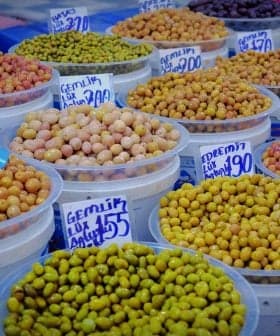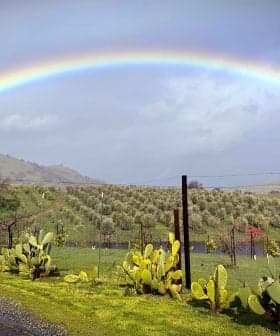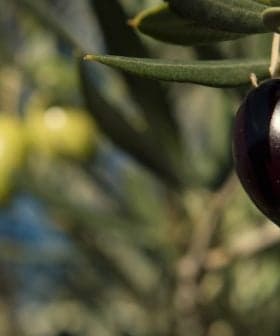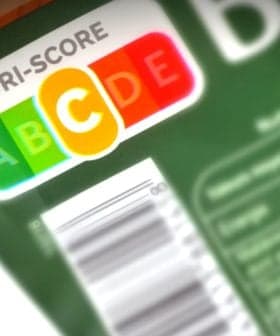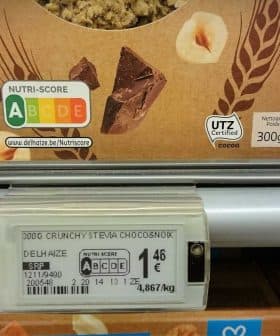Importers' Group Announces New Labeling Rules
The North American Olive Oil Association will require its members to apply two-year best-by dates on labels, ensure that country of origin details are clear, and provide recommendations for storage and usage.
The North American Olive Oil Association (NAOOA) has implemented new rules to enhance transparency and consumer confidence in olive oil products, including two-year best-by dates, clearer country of origin labels, and stricter documentation for organic labeling. These changes are intended to increase consumer trust in olive oil quality, as the association represents about 85 percent of branded olive oil sold in the U.S. and aims to address concerns over labeling practices and misinformation.
The North American Olive Oil Association (NAOOA) has announced a new set of rules aimed at increasing transparency and customer confidence.
Given that our members’ products represent about 85 percent of the branded olive oil sold in the U.S., these changes have the potential to make a real difference for consumers.
“Olive oil consumers more and more are looking for help in discerning quality,” NAOOA executive director Joseph R. Profaci told Olive Oil Times. “But we realize that ensuring quality also means ensuring accuracy and clarity of the information that consumers receive on labels, whether the information has to do with the oil’s origin, the conditions under which it was grown, what is in the bottle and its expected shelf life under proper storage conditions.”
The new standards require all members of the association to apply two-year best-by dates; ensure that all country of origin details are displayed more prominently and concisely on labels; clearly label all products that are less than 100 percent olive oil; and provide recommendations for storage and usage.
Quality Seal Program members of the NAOOA will also have to show more strict documentation before they label their oils as organic. If an olive oil is labeled as organic before the NAOOA can test it, the producer must “provide copies of organic certification documents from the certifying agent authorized under the National Organic Program (NOP) or another certification body recognized by NOP.”
Association members must comply with the group’s new standards by January 1, 2019.
The changes might be considered a modest move by a group representing the world’s largest olive oil companies in the U.S., many of which have been fending off legal challenges resulting from years of shadowy labeling practices.
“Not exactly a game-changer,” Profaci admitted. “But we felt these are important steps in helping increase consumer confidence. Given that our members’ products represent about 85 percent of the branded olive oil sold in the U.S., these changes have the potential to make a real difference for consumers.”
“Although there’s significant evidence to support consumer trust in olive oil, including research by the United States Food and Drug Administration (FDA) that tested 88 products labeled extra virgin and found no confirmed adulteration in any of the samples, there’s still a lot of misinformation and even outright fake news circulating about it,” Profaci said in a press statement.
Profaci referred to a 2015 study by the FDA that concluded “three of 88 samples labeled as EVOO failed to meet purity criteria, indicating possible adulteration with commodity oil and/or solvent-extracted olive oil,” although the FDA also held open the possibility that geographical variations could have led to the results.
“The FDA clearly stated that it was possible these were false positive results due to the geographical variations in chemical composition of the oils, two [of which were] from South America and one [of which was] from Greece,” Profaci said. “Three samples only represented 3.4 percent of the 88 samples tested, leading the FDA to conclude the risk of EVOO adulteration to be ‘low.’ Consumers deserve to know that.” he added.
The new two-year best-by labels will officially codify a recommendation that olive oil is best before two to three years after the harvest date and when stored under the correct conditions.
Selina Wang, the research director of the UC Davis Olive Center, conducted a literary review and identified five methods for determining best-by dates. The two-year recommendation is an estimate obtained from her research.
“The two-year recommendation is a rough estimate widely used in the industry, some oils will last longer and some not that long,” Dan Flynn, executive director of the Olive Center told Olive Oil Times. “Generally oil will taste better and have more healthy compounds the fresher it is.”
NAOOA members are also encouraged to use shorter best-by dates for extra virgin olive oils from certain varieties of olives that do not maintain their freshness for so long. The new standards also require members to put explicit instructions on storage best practices.
“Store in a cool, dark place away from heat and light. Cap when not in use,” is the example cited by the organization.
The NAOOA’s changes to labels regarding country of origin requires members to state the details of where the olives used to make the oil were grown and must be placed “immediately adjacent” to the “imported from” or “packed or bottled in” statements.
The move comes after Deoleo, USA, which is a member of the importers’ group, settled a class action lawsuit at the US District Court in San Francisco for $7 million. The plaintiffs accused Deoleo of misleading consumers by labeling some of their olive oil as “imported from Italy” and disclosing in much smaller font on a separate part of the bottle that olives from at least seven other countries were used in production.
As part of the settlement, Deoleo did not admit any fault in the matter, but they did remove the “imported from Italy” statement from their products. A judge will decide whether or not to accept the settlement this month.
Profaci said that many NAOOA members have already adopted the new rules and most are currently in compliance with the requirements.
“While the association trusts that each member will follow the rules they have chosen to adopt, we will continue to verify,” he said.
“Over the years, we have tested thousands of products. To ensure that the applicable rules and laws are enforced, we will take steps we deem appropriate under the circumstances, such as communicating directly with any companies found in violation, informing authorities, and even taking legal action if necessary.”
In its first-ever legal action against an olive oil company, the trade group sued the makers of the Capatriti brand of oil in 2013. The civil lawsuit claimed that The Gourmet Factory falsely sold oil that was chemically extracted from leftover olive skins and pits as “100% Pure Olive Oil.” The Gourmet Factory later joined the little-known USDA Quality Monitoring Program, according to a 2016 press statement.



